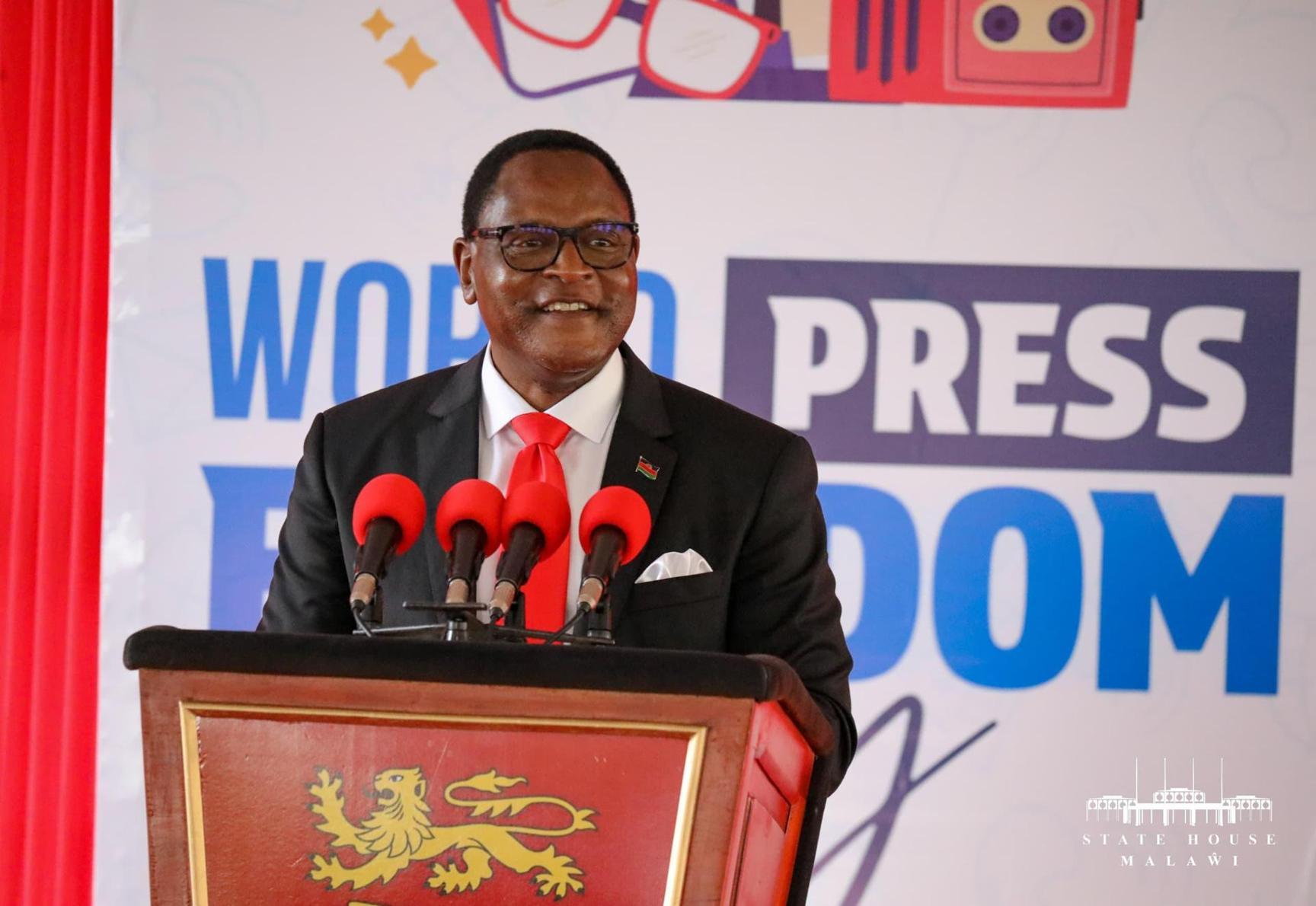Africa-Press – Malawi. At the 2025 Presidential Media Breakfast in Mzuzu, President Lazarus Chakwera smiled for the cameras. But behind the photo ops and polished platitudes was a media landscape under siege—silenced, squeezed, and suffocating under his administration’s watch.
While croissants were served and quotes from Denzel Washington filled the air, journalists across Malawi continued to navigate a reality where press freedom is dying a slow, state-sanctioned death.
Golden Matonga, Chairperson of MISA Malawi, didn’t mince words. In a room choreographed for comfort and compliance, he delivered a stinging indictment: press freedom in Malawi is not just in decline—it’s in freefall.
The numbers back him up. According to Reporters Without Borders, Malawi has plummeted in the World Press Freedom Index three years running—from 62nd in 2022 to 81st in 2024. That’s not a slip; it’s a nosedive.
And no amount of literary name-dropping can cover it up.
Chakwera, in a speech heavy on philosophy and light on accountability, referenced The Death of Truth and lamented the media’s “credibility crisis.” But the irony was lost on no one. This is a president who talks about truth while presiding over an information blackout. Who calls for balance while starving the press of access. Who claims to support transparency while hiding behind international platforms and dodging live debates.
Matonga wasn’t fooled—and neither were the journalists in the room. He praised early reforms like the repeal of sedition laws and the rollout of the Access to Information Act. But he warned that those gains are fast being erased by government overreach, creeping censorship, and economic chokeholds.
One glaring example: the sky-high broadcasting license fees pegged to the US dollar, which are slowly killing local radio and TV stations already battered by a weakening kwacha.
Then there’s the Cyber Security and Electronic Transactions Act—a vaguely worded law that’s become a blunt instrument for intimidation, not justice. Jail cells may be emptier, but fear is still alive and well in newsrooms across the country.
And the secrecy? It’s now policy. The government’s refusal to publish the names of pardoned prisoners—people convicted in open courts—is a slap in the face to transparency. “Should justice be hidden behind closed doors?” Matonga asked. The silence was telling.
Press briefings? All but extinct. Instead, the president prefers the comfort of curated podcasts and safe international stages, where the questions are softer and the scrutiny is minimal.
With elections on the horizon, Chakwera’s growing aversion to live presidential debates is especially troubling. Every winning candidate since 1994 has faced the nation. Will he be the first to hide?
Meanwhile, the state broadcaster—funded by taxpayers—remains a partisan mouthpiece, spinning for the ruling party while muting dissent. Matonga challenged it to act with integrity and demanded that Chakwera show leadership by facing the public, unfiltered and unprepared.
“I hope you will be the first sitting president to take part in a civil society-led debate,” he said. It was less a request than a challenge. And a warning.
To his credit, Chakwera didn’t dodge entirely. He acknowledged a “credibility gap” and spoke of rebuilding trust. But when your government wields secrecy, intimidation, and restriction as tools of governance, talk of partnership sounds like performance.
The media breakfast wasn’t a celebration. It was a clash. One side demanded answers. The other offered aphorisms.
If President Chakwera truly believes in democracy, he must prove it not with speeches, but with openness, access, and a willingness to be held accountable.
Because in Malawi today, freedom isn’t in the food. It’s in the fight.
For More News And Analysis About Malawi Follow Africa-Press






